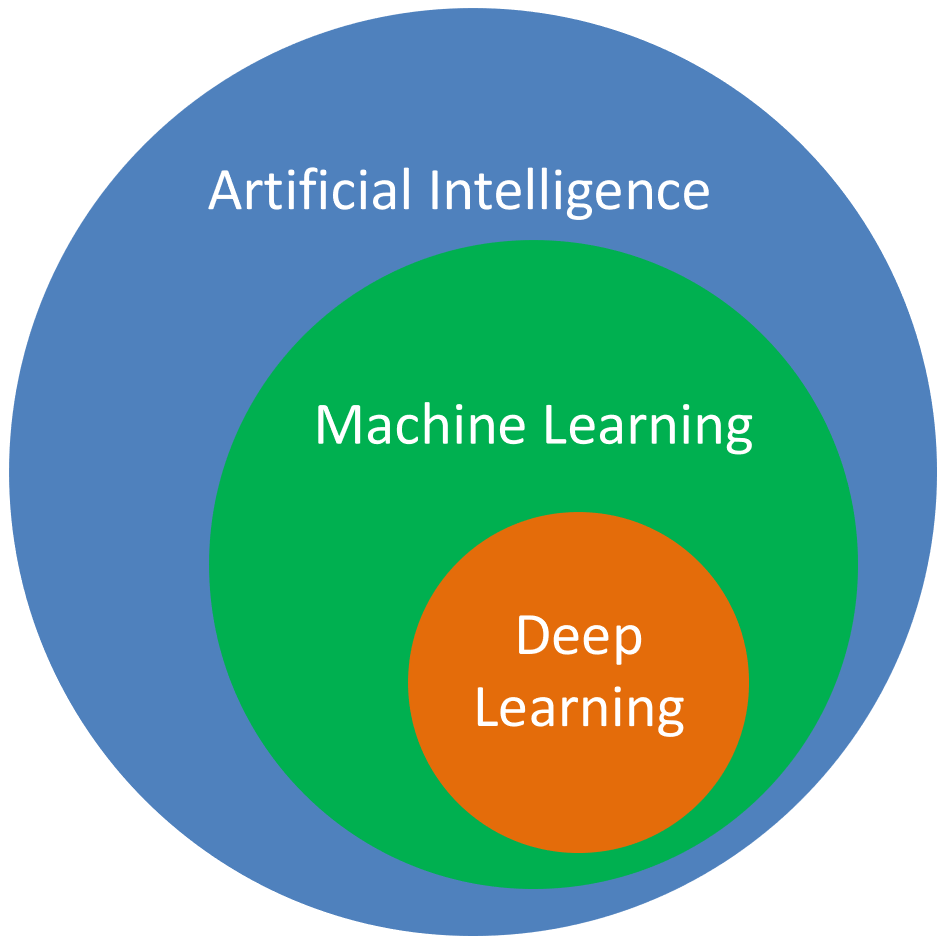This video and post are part of a One Dev Question series on MLOps - DevOps for Machine Learning. See the full video playlist here, and the rest of the blog posts here.
In this post, we'll look at the difference between two of the buzzwords you'll hear in this space - Artificial Intelligence (AI) and Machine Learning (ML).
The terms "Artificial Intelligence" and "Machine Learning" are often used synonymously, but they don't mean the same thing. So what's the difference?
I mentioned at the end of the video that artificial intelligence can be thought of as anything that used to require human intelligence, but can now be done by a machine.
Under this definition, a calculator was once "artificial intelligence". And it's true! A "calculator" was originally a person employed to do calculations. With the advent of the mechanical calculator in the 17th century, this previously human-only task was now being performed by a machine. It must have seemed like magic in much the same way as some recent AI breakthroughs.
An aside: If you want your mind blown, I can highly recommend the "Two Minute Papers" YouTube channel. Video walkthroughs of the newest AI and technology papers:
Back on topic.
Part of the reason that "Artificial Intelligence" and "Machine Learning" are used interchangeably is because when you're talking about one, you're usually talking about the other. Sometimes saying AI is more powerful (e.g. marketing), and sometimes ML is more powerful (e.g. recruiting)!
Difference between machine learning and AI:
— Mat Velloso (@matvelloso) November 23, 2018
If it is written in Python, it's probably machine learning
If it is written in PowerPoint, it's probably AI
To be more accurate, machine learning is a subset of artificial intelligence. You can think of it as one way of implementing AI. Most of the breakthroughs in AI in the last few decades have been because of machine learning. Deep learning is a particular type of machine learning that's provided many of those breakthroughs. So while AI and ML might be synonymous, they're not the same.

In short, if you're actually creating AI, you're probably doing it with Machine Learning.
If ML interests you but you don't know where to start, there are plenty of learning paths and modules available on Microsoft Learn.
If you're not familiar with MS Learn, it's a site that gives you FREE hands-on guided learning across a huge number of topics. It's the best way to learn about Azure and Microsoft products and services!
